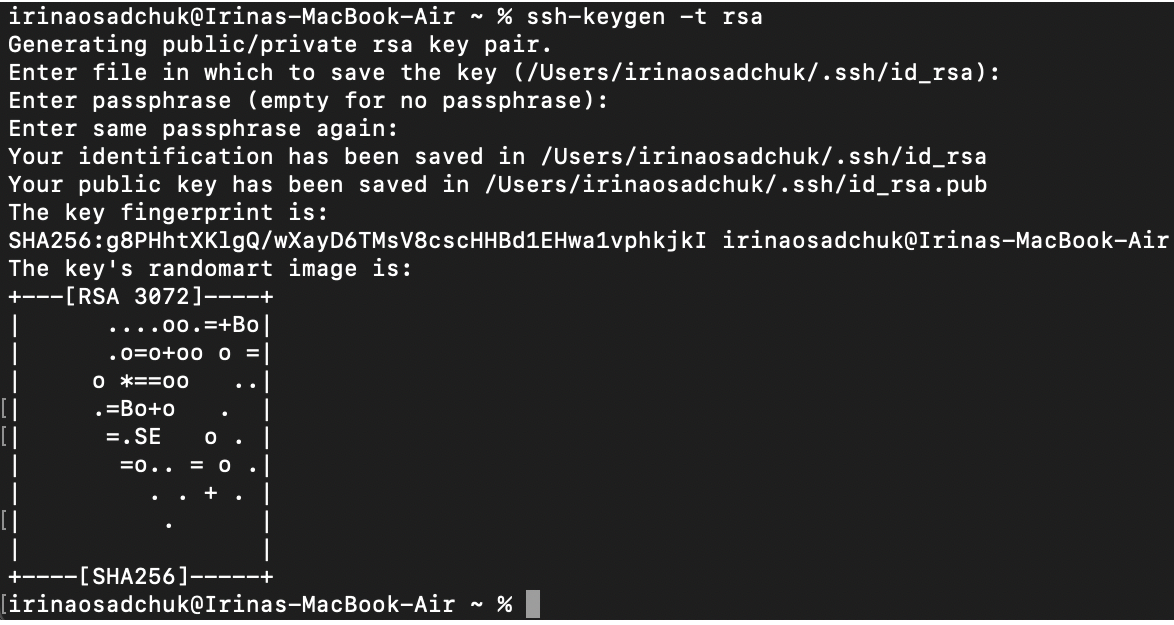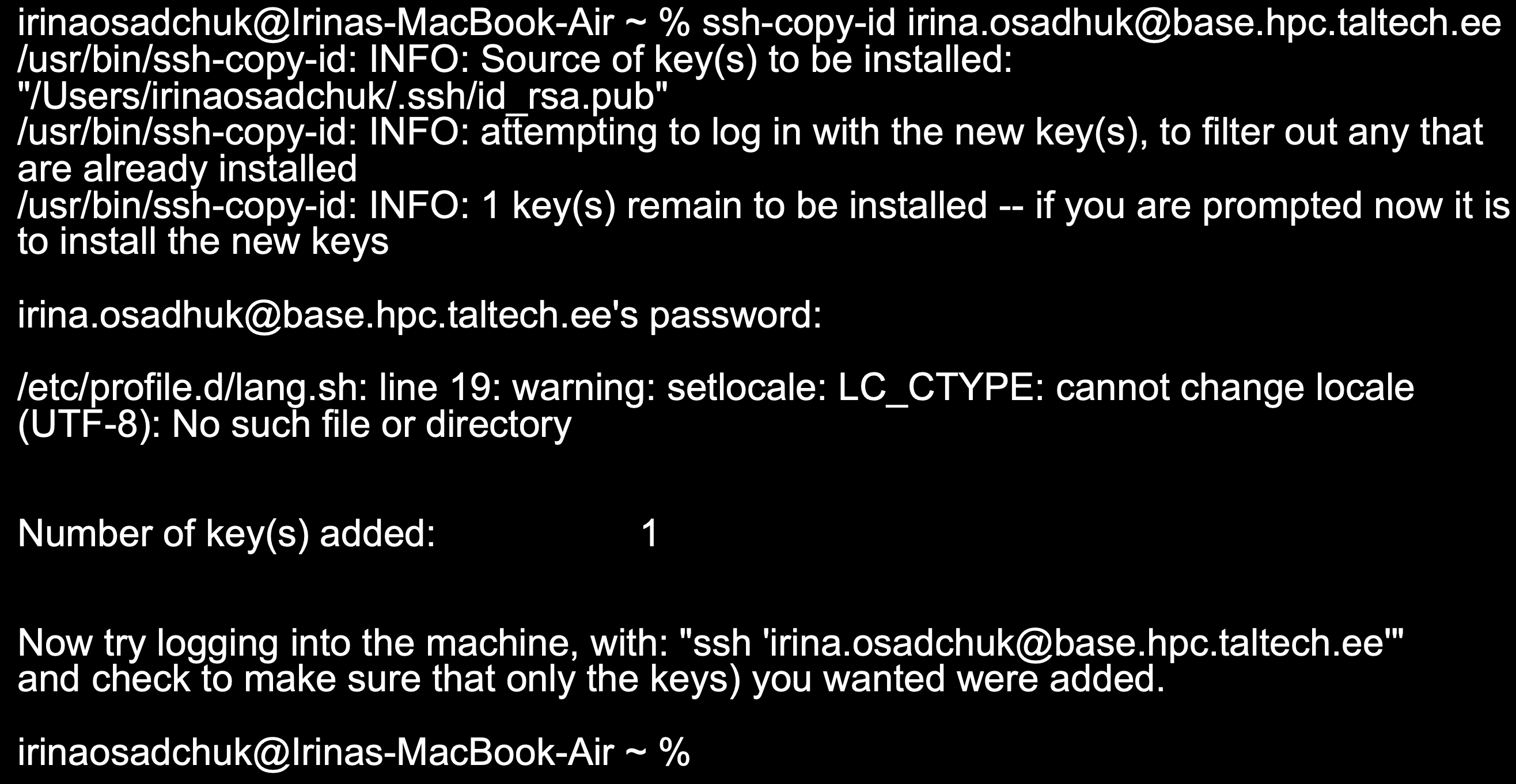Getting SSH keys to work#
SSH keys fingerprint is a security feature for easy identification/verification of the host, user is connecting to. This option allows to connect to the server without a password. On first connect, user is shown a fingerprint of a host-key, and asked if it should be added to the list of known hosts.
Please compare the fingerprint to the ones below, if one matches, the host can be added, if the fingerprint does not match, then there is a problem (e.g. man-in-the-middle-attack).
base.hpc.taltech.ee:
ECDSA SHA256:OEfQiOB/eIG8hYoQ25sQk9T5tx9EtQbhi6sNM4C8mME
ED25519 SHA256:t0CSTU0AnSsJThzuM68tucrcfnn2wLKabjSnuRKX8Yc
RSA SHA256:qYrmOw/YN7wf640yBHADX3wnAOPu0OOXlcu4LKBxzG8
amp.hpc.taltech.ee:
ECDSA SHA256:yl6+VaKow6qDZAXL3rQY8+3d3pcH0kYg7MjGgNVTWZs
ED25519 SHA256:YOjtpcEL2+AWm6vDFjVl0znYuQPMSVCkyFGvdO5fm8o
RSA SHA256:4aaOxumH1ATNfiIA4mZSNMefvxfdFm5zZoUj6VR7TYo
viz.hpc.taltech.ee:
ECDSA SHA256:z2/bxleZ3T3vErkg4C7kvDPKKEU0qaoR8bL29EgMfGA
ED25519 SHA256:9zRBmS3dxD7BNISZKwg6l/2+6p4HeqlOhA4OMBjD9mk
RSA SHA256:Q6NDm88foRVTKtEAEexcRqPqMQNGUzf3rQdetBympPg
Generating SSH keys#
In Linux/Mac SSH keys can be generated in cmd by command:
In Windows SSH keys can be generated in powershell by command:
The program prompts the user through the process and asks the user to set a passphrase, which should be created. This process ends with two keys in the path it showed. One of them is named (by default) id_rsa and the other id_rsa.pub. The .pub key is your public key, the other is a private key.
Danger
Never share your private key with anyone!
More detail guides can be found here:
- Linux - https://linuxhint.com/generate-ssh-keys-on-linux/
- Mac - https://docs.tritondatacenter.com/public-cloud/getting-started/ssh-keys/generating-an-ssh-key-manually/manually-generating-your-ssh-key-in-mac-os-x
- Windows - https://phoenixnap.com/kb/generate-ssh-key-windows-10
Uploading SSH keys to base#
Once the keys are created, the public (.pub) key needs to be uploaded to base. There are a couple of ways to do it. On base, SSH public keys are found in /etc/AuthorizedKeys/$USER file, there is a link to it from .ssh/authorized_keys file.
Several SSH keys can be used simultaneously to access the same user account in case of use several different devices.
On Linux/Mac to copy keys to the cluster:
where uni-ID should be changed to user's uni-ID.
On Windows it can be copied in powershell with this command:
type $env:USERPROFILE\.ssh\id_rsa.pub | ssh Uni-Id@base.hpc.taltech.ee "cat >> .ssh/authorized_keys"
where uni-ID should be changed to user's uni-ID.
A more thorough explanation with an example can be found here.

